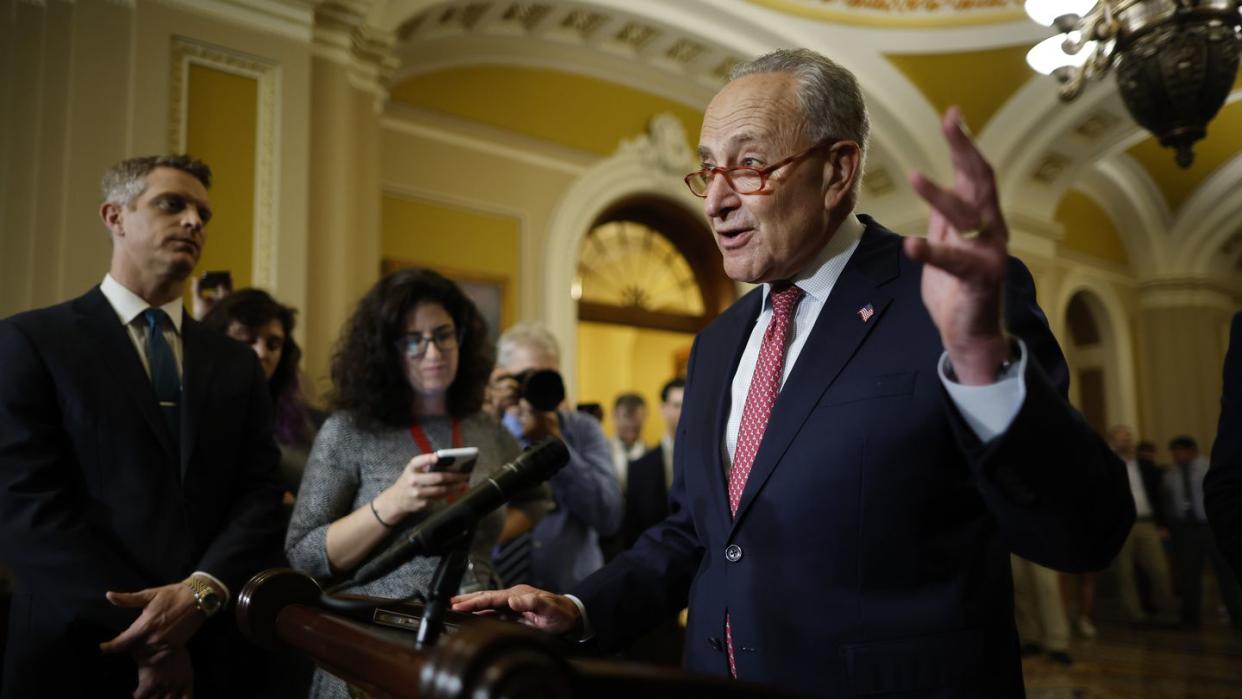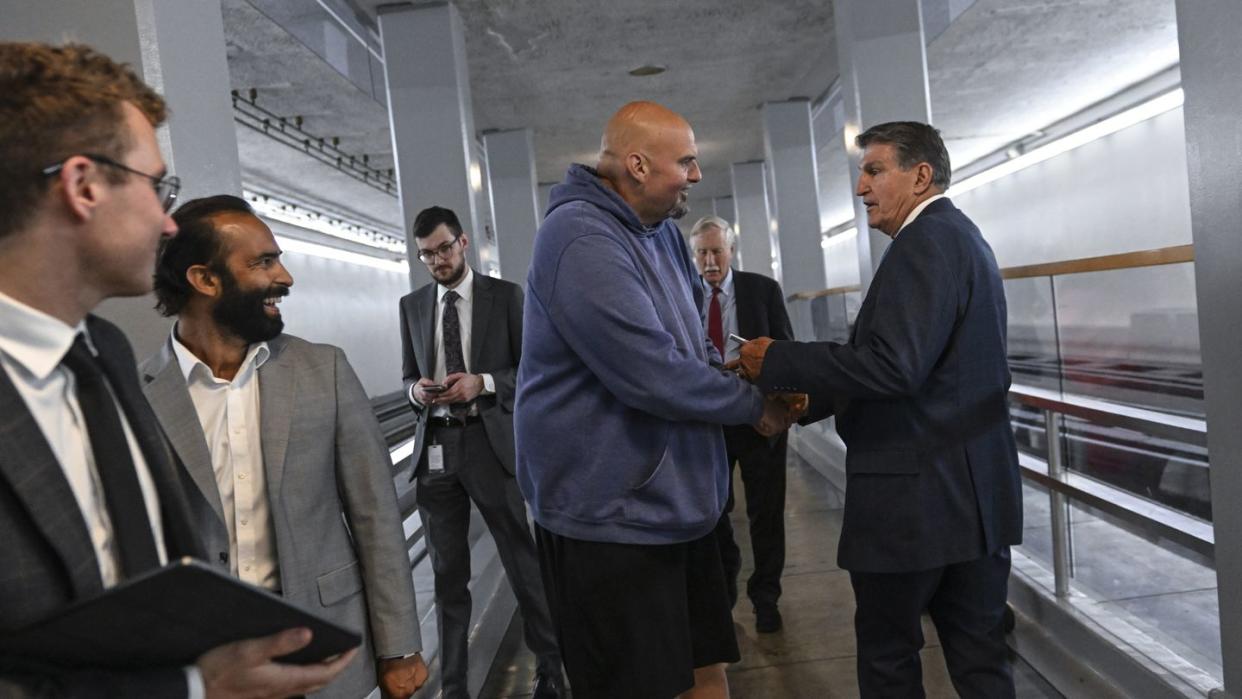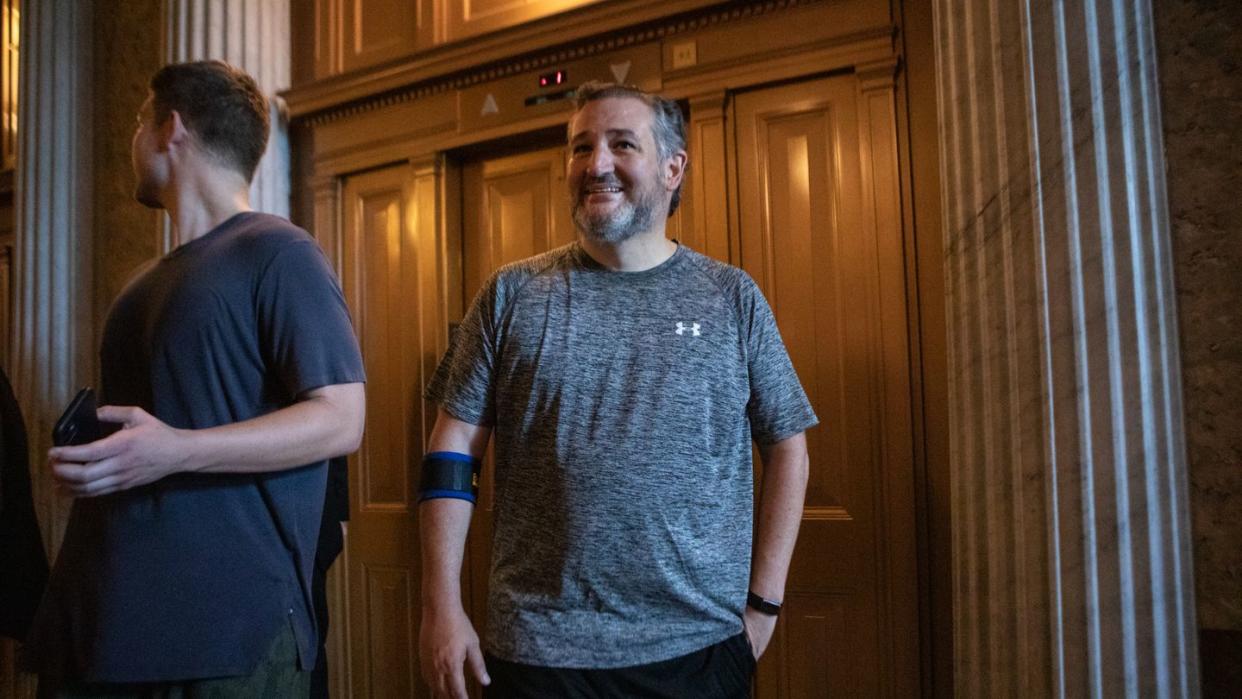The Senate is No Longer Required to Adhere to a Business Attire Dress Code. Is This a Good Thing?

Miuccia Prada once famously said, "Fashion is instant language." So, what might our American politicians be saying with the recent news regarding the dress code on the Senate floor? Senator Chuck Schumer, a democrat of New York and the majority leader, has made a sartorial change in the Senate that has thunderous implications. For the first time in centuries, American lawmakers are no longer required to don suits and ties while conducting business on the Senate floor.
"There has been an informal dress code that was enforced," Senator Schumer said in a statement according to the New York Times. "Senators are able to choose what they wear on the Senate floor. I will continue to wear a suit."
To make it clear: the way members of Congress dress is not more important than how they vote, and they are not elected into office because of their wardrobes, but rather because of their campaign promises. But, there is something to be said about dressing for the job.
This change in dress code could be a response to a trickling trend: Senator John Fetterman, the six-foot-eight Democrat from Pennsylvania, was recently seen wearing his signature Carhartt sweatshirts and baggy shorts to work events. Senator Ted Cruz, Republican of Texas, was seen exiting the Senate chamber wearing gray athletic attire from Under Armour after a vote last year. Barack Obama was known to ditch the tie during his presidency, while a borderline vulgar red baseball cap was often worn by Donald Trump.

Outside of politics, American fashion designers ushered athleisure into the international market, making sneakers, hoodies, and cargo pants marketed and priced to be as luxurious as silk shirts and tailored suit jackets. The Kardashians, arbiters of great cultural influence arguably in the same way as the British Royal family is for the UK, made biker shorts and wearing baseball caps inside fashionable. Suits and ties, once the staple of American attire, have seen a tremendous decline in sales. (Kanter Worldpanel reported that spending on men's suits collapsed from $569M a year in 2017 to $194M in 2020, albeit Covid-19 surely influenced this statistic.) Only recently, perhaps ushered by a cultural pendulum swing away from the overly casualness of dress that has ruled the past decade, have suit sales seen a slight comeback.
But, what does it mean when one of the greatest democratic institutions in the world goes casual? What does it say when personalized attire becomes more important than getting the job done?
Dressing to one's preference day-to-day is hardly a negative. But doing so in a government setting draws attention to oneself rather than keeping the focus on the occasion and mission. (This is also why many schools require a dress code.) Capitol Hill is not a place to make a fashion statement and when clothing in the Senate chamber teeters on casual, what does it imply as decisions about international relations, taxes, and abortion are being made? Do these issues not call for better sartorial decisions? Casual clothing suggests a casual affair, and these topics are simply the opposite of that. Naysayers who think that clothing and lawmaking (or working) do not correlate are simply ignoring a longstanding truth: clothes have always been a form of non-verbal communication. One's appearance offers an immediate impression to another, and signals respect, personality, and attitude long before words are spoken. "One of my clients is in congress," an art dealer tells T&C. "And, he wouldn't be caught dead in a hoodie."

Despite the ongoing American casualness, rules of dress are not archaic; they are simply a sign of respect for oneself and others. Think of dress codes outside of the political sphere. For opening nights at the opera or theater performances, black tie is often encouraged in a way to honor the performers and production. Cocktail attire is appropriate for gallery openings as a nod to the artists. Even weddings, which vary in dress code requirements, follow the lead of the bride and groom, and those who choose otherwise commit a massive social faux pas. Even at high-end restaurants, the staff is dressed in beautiful blazers and slacks as a sign of respect to the chef, institution, and guests. On the more casual side, a costume is required for a costume party.
Now, these instances of ceremony have the opportunity for personalization, be it with a brooch or particular shoes, or something else. But, the major difference between the aforementioned events and those that happen within the Senate chamber is simple: professional work. The Senate is meant to play as a team (wishful thinking?) and a distraction may occur if a member of that team pulls a Ted Cruz or John Fetterman. Serious matters call for serious clothing, and garments that fall under "casual" should have no place in dictating an outcome that impacts millions of people. "Not only is it a sign of respect for others, but most importantly, yourself," Ralph Fitzgerald, the head suitmaker at Fitzgerald Bespoke located in Manhattan's Chrysler building, says. "It creates such an unspoken confidence."
Captains of all industries will argue that confidence is essential to decision making. The changing aesthetics of fashion are surely welcomed, but there are instances where formality should not be sacrificed for personal preference. A place where laws are made is certainly one of them.
You Might Also Like
